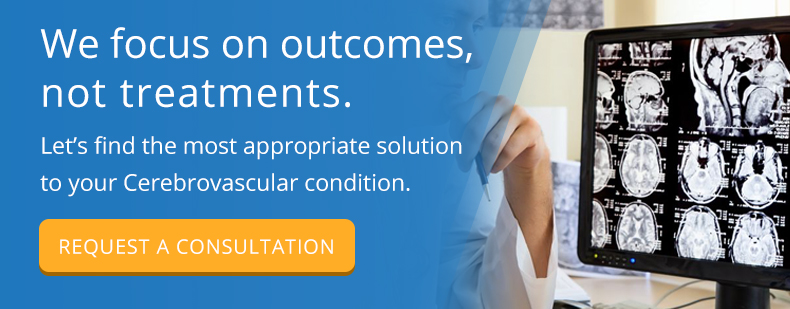You or someone you know may have recently suffered from a transient ischemic attack. However, your particular case is as individual as you are, and what your transient ischemic attack diagnosis means for you will depend upon a number of factors, including your current health status and the severity of your condition.
What your doctor recommends as treatment and prevention of future attacks could range from emergency surgical treatment to simply increasing your exercise. It is important to communicate with your healthcare provider to make sure that you understand the factors that contributed to your transient ischemic attack and how to help prevent recurrences.
Making Healthy Lifestyle Changes
For many patients, your physician will likely recommend making lifestyle changes in order to prevent future transient ischemic attacks. These recommended changes may be in combination with medication or surgery, or they may be standalone suggestions that, if followed, could significantly reduce your risk for future attacks.
Oftentimes, making these changes will help alleviate risk factors that have contributed to your transient ischemic attack. They can have beneficial effects such as lowering your blood pressure, reducing cholesterol, controlling diabetes and reducing inflammation of your vascular system, all by making different choices in your day-to-day life.
These changes may be difficult to make, but discussing your transient ischemic attack diagnosis openly with your physician can help you understand why these steps can help you avoid future attacks. He or she will help you develop a plan with attainable goals, and you can collaborate together to come up with a plan that works for you.
Some recommendations might include:
- Smoking cessation
- Developing an exercise routine
- Making dietary changes, such as reducing sodium, and increasing protein and fresh vegetables intake
- Stress reduction techniques
Medications can help
Making major lifestyle changes can be difficult, and you may require medications to help you achieve your goals. Your condition may also just be more severe, and you will need to take medication to prevent recurrence after your transient ischemic attack diagnosis.
The medications your physician prescribes you will depend upon your particular case and any other health conditions you may have. Some patients require drugs to help treat hypertension, diabetes or high cholesterol. Others require medication to help them stop smoking, or to treat depression or anxiety.
To specifically reduce your risk for future transient ischemic attacks, you may be prescribed antiplatelet medications and/or anticoagulants.
- Antiplatelets include over-the-counter aspirin, as well as prescription drugs, which reduce the chance of clots forming in your blood vessels by keeping small blood cells, called “platelets,” from sticking together.
- Anticoagulants have a similar effect, in that they also prevent blood clots. You may have heard of warfarin, which is a common anticoagulant medication. Other names include Pradaxa or Eliquis. These drugs reduce the level of certain proteins in the blood that allow blood clots to form and are often referred to as “blood thinners.”
Sometimes Surgery Is Necessary
Some patients will require surgery to prevent future transient ischemic attacks. This could be because the previous lifestyle modifications and medication were not effective on their own, or it could be the initial treatment for a patient with a more severe condition.
If your doctor has told you that you will need to undergo surgical intervention to prevent future attacks after your transient ischemic attack diagnosis, the type of surgery depends upon the underlying cause of your condition.
Some people experience a transient ischemic attack because the blood has trouble getting to the brain, often due to a narrowing or blockage of the carotid artery. Your carotid artery is the large blood vessel running up the side of your neck, where you would typically feel for a pulse. There is a fork in the blood vessel there, making it a common spot for blockages.
If your transient ischemic attack was due to a problem with your carotid artery being blocked, a surgeon can perform a procedure to open up the artery, clean out any blockages, and restore blood flow to healthy levels. Another procedure, called “angioplasty,” involves expanding the artery with a balloon-like device, then placing a mesh stent to hold the artery open. This will also help allow the blood to flow through the artery at normal levels.
Sometimes a transient ischemic attack occurs because of a problem with the blood vessels within the brain itself. If this is the case, your surgeon may perform a procedure called “bypass surgery,” where the surgeon connects healthy blood vessels together, creating an alternate route to the damaged area. Similar to the other surgeries, this will also return blood flow to the brain to a normal level.
Communication Is Key
No matter what the underlying cause of your transient ischemic attack diagnosis, it is essential that you discuss your individual case with your physician to develop a treatment plan tailored to your condition.
A diagnosis of a transient ischemic attack can be unsettling, but an experienced doctor can help explain what led to your condition and how to prevent future events. By developing an understanding of your condition and taking an active role in your healthcare, you will be in a better position to maintain your health and avoid experiencing further transient ischemic attacks or related health complications.


